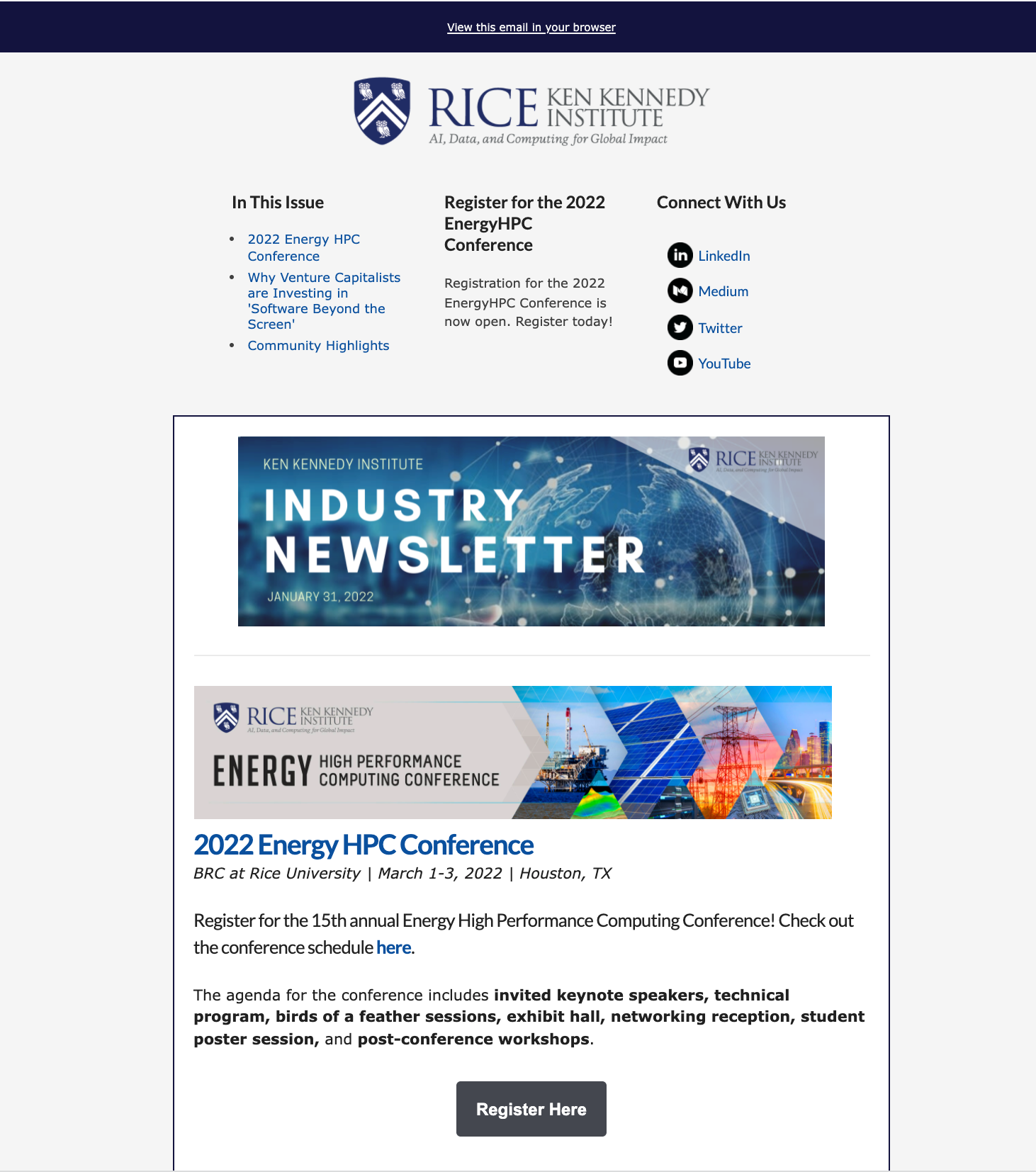Thompson Distinguished Lecture Series
Adrian Raftery | January 31, 2022 | 4:00 - 5:00pm CST | Probabilistic Sea-Ice Forecasting | McMurtry Auditorium (Virtual)

In recent decades, climate change has caused sharp reductions in the volume of sea ice in the Arctic Ocean. This has created demand for accurate forecasts of Arctic sea ice, for decisions about resource management and shipping. Such forecasts have two main components: where sea ice will be present, and how thick the ice will be if it is present. Existing methods rely on ensembles of deterministic dynamic models, but we show that these can be both biased and poorly calibrated. We propose a probabilistic contour model to predict the area where sea ice will be present, which corrects the bias in existing physical models and assesses their uncertainty. We then develop a Gaussian random field model for ice thickness, conditional on the ice-covered region. We apply our method to forecast Arctic sea ice thickness, and find that point predictions and prediction intervals from our model offer improved accuracy and calibration compared with existing forecasts. We also show that our model can generate well-calibrated short-term forecasts of aggregate quantities such as overall sea ice volume. This is joint work with Hannah Director, Peter Gao, and Cecilia Bita.
Learn more here. Register here.
Quantum Machine Learning with Subspace States
Anupam Prakash | February 1, 2022 | 12:00 - 1:00pm CST | Virtual

Abstract: Unary amplitude encodings $\ket{x} = \sum_{i} x_{i} \ket{i} $ of vectors $x\in \R^{n}$ are commonly used in quantum machine learning for representing classical data. In this work, we introduce subspace states $\ket{Col(X)} = \sum_{S\subset [n], |S|=k} det(X_{S}) \ket{S}$ for matrices $X \in \R^{n \times k}$ with orthonormal columns as a quantum representation for $k$-dimensional subspaces of $\R^{n}$. We provide subspace state preparation algorithms with gate complexity $O(nk)$ and depth $O(k \log n)$.
We present three new quantum machine learning algorithms using subspace states. The first is a quantum determinant sampling algorithm using $O(nd)$ gates and with circuit depth $O(d\log n)$. The state of art classical algorithm for the task requires $O(d^{3})$ operations. The second quantum algorithm is a potentially exponential speedup for singular value estimation (SVE) on exponentially large compound matrices $\mathcal{A}^{k}$ with the same resources as SVE for A. The third algorithm reduces the depth of circuits used in quantum topological data analysis from $O(n)$ to $O(\log n)$, an exponential improvement in terms of circuit depth.
Bio: Anupam Prakash obtained his Ph.D. in Computer Science from UC Berkeley, his dissertation was on quantum algorithms for linear algebra and machine learning. His research during his post-doctoral work at Centre for Quantum Technologies, Singapore and IRIF, Paris, France continued to focus on quantum machine learning and includes works on quantum recommendation systems and quantum linear systems for low-rank matrices. More recently, he has been working on bringing quantum machine learning closer to implementation on near term quantum hardware at QCWare, a Silicon Valley based quantum computing startup.
Click here to join.

Robust U-I Collaborations: Insights for Researchers
First Session Airs on February 3, 2022 at 11:00am EST | Virtual
UIDP’s Insights for Researchers Webinar Series provides researchers from both companies and universities with guidance and tools to strengthen sponsored research collaboration. With discussion leaders representing perspectives from both sectors, the series covers essential topics from UIDP’s cornerstone researcher guidance documents, the Researcher Guidebook, and the Researcher Quick Guide.
From tips for establishing initial contacts to budgeting and managing intellectual property, these training sessions build a strong foundation for anyone interested in sponsored research collaboration.
Why every researcher on your team should attend:
- Learn about the types of research ripe for industry-university collaboration and how to manage expectations when navigating partner priorities and needs.
- For university researchers and those in academia who facilitate sponsored research relationships: Get insight into what industry seeks from academic research partners, ways to recruit industry sponsors, and practical tips for successful collaboration.
- For industry researchers and their academic connectors: Learn about the motivations and constraints that arise when forging relationships with academic partners. Learn more.
Click here to register.
Registration is required. UIDP is offering this series at no charge to members. The fee for non-members is $100 per webinar or $900 entire series.
Atlas of AI: Mapping the Political Economies of Planetary Computation
Kate Crawford | February 9, 2022 | 4:00 - 5:00pm CST | Virtual
Machine learning systems are already playing a significant role in many of our social institutions, including healthcare, education, hiring and criminal justice. But despite the patina of objectivity and neutrality, recent years have shown these systems can reproduce and intensify forms of structural bias and discrimination. Rather than taking a narrow focus on code and algorithms, Crawford reveals the wider political economy of how AI is “made” — from lithium mines in Nevada, to the exploited workers behind “automated” systems, to the regimes of classification in training data. This talk outlines how AI functions as a registry of power, which has only amplified during the pandemic at a time of deepening inequality around the world.
Click here to register.
|
